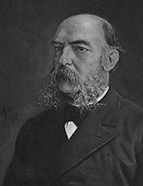

("La crítica literaria en Portugal", p. 159). The research carried out by JAR and the terms he coined thus applied to the entire Iberian Peninsula. His ideas notably influenced the 1870s Generation, as can be seen in the works of Antero de Quental and Oliveira Martins.
JAR's centralism was further emphasised in the four volumes of the Historia de la villa y corte de Madrid [História da vila e da corte de Madrid] written in collaboration with Juan de Dios de la Rada y Delgado, which started from the premise that their aim was to narrate the rise "to the heights of prosperity, diminishing other cities with clearer origins of their traditional influence, which had been long celebrated for their achievements in arms, humanities, and sciences, ultimately rising to attain absolute supremacy over all and becoming the heart and head of a great nation, feared and respected by the people." This and other works thus became a reflection of JAR's political ideas, which were exposed simultaneously in his writings and in his public endeavours. A monarchist and a member of the Unión Liberal [Liberal Union], he was Theatre Censor and, in 1863, a member of the Cortes [Spanish Parliament]. When the revolution of 1868, known as La Gloriosa, forced the exile of Queen Elizabeth II, JAR was removed from the university and dismissed as director of the Museu Arqueológico Nacional [National Archaeological Museum], a position to which he had been appointed that same year. In the following years, he regained most of the positions he had held in the various state organisations and the professorship at the university; but from 1876, due to health issues probably amplified by the death of two of his children, he moved to Andalusia. He died in Seville in February 1878.
